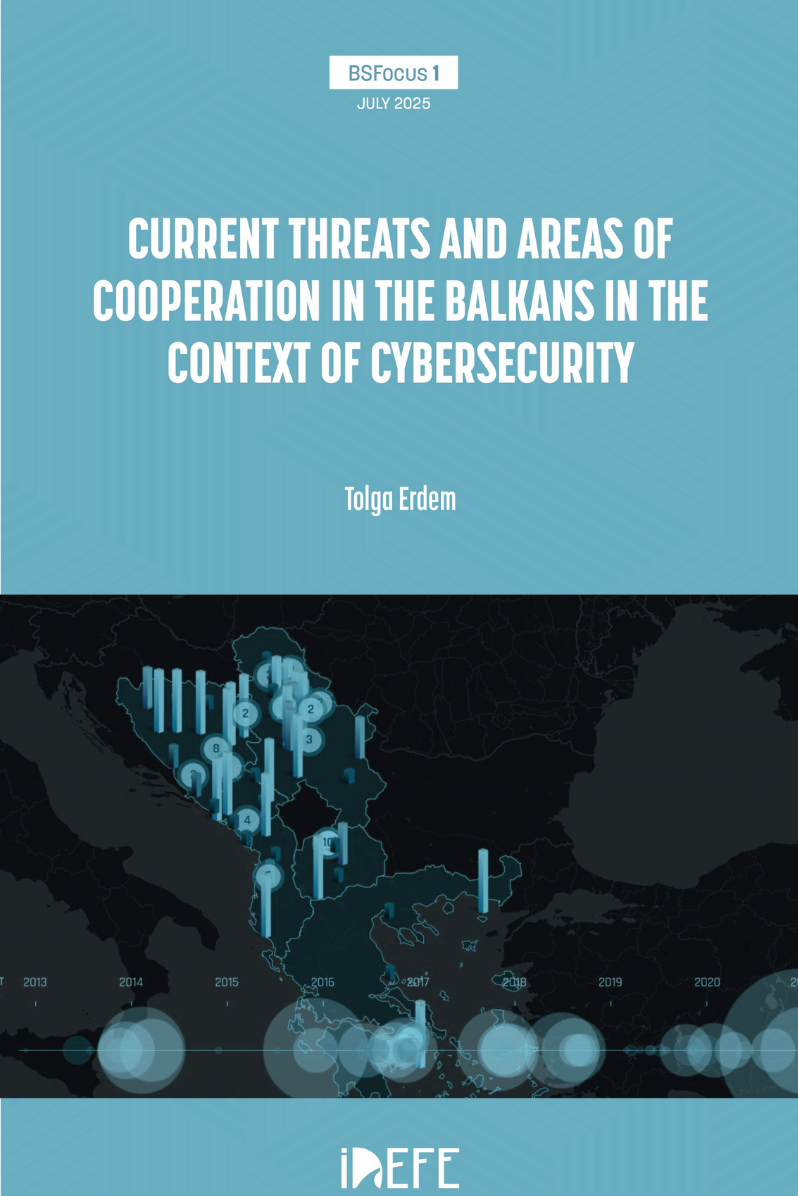Tolga Erdem
IDEFE Publications, 2025
16 pp.
DOI: 10.51331/focus01
/
Introduction
Although endowed with a profound historical and cultural heritage, the Balkans have been persistently marked by a climate of insecurity and instability, often manifesting in turbulent and disorderly dynamics. Seen from a geopolitical perspective, the Balkans clearly matter in terms of Europe’s overall security. What happens in the region often shapes how stable the European Union (EU) can remain, so treating the two as separate is unrealistic. It is equally untenable to argue that the instability and conflict in the Balkans would remain without consequences for Europe at large and the broader international security framework. Hence, the Balkans represent a geostrategically significant nexus central to both European affairs and the wider international order. Their prominent status in the tangible geopolitical arena is poised to maintain equal significance within cyberspace, which constitutes the new operational domain of 21st century international relations.
In the current century, rapid technological change and widespread digital integration are reshaping virtually every dimension of human activity. Cyber issues in international relations have changed a lot and don’t fit the old models anymore. With many different players active in cyberspace today, it’s more complicated than ever to predict and control what happens on a global level. Considering the intricate and opaque nature of cyberspace, the offensive and defensive capabilities and tools possessed by actors in cyber international relations may be increasingly favored as a testing ground for competition between major powers in a region such as the Balkans, which is plagued by instability and insecurity in the real world. Recent increases in cyberattack incidents within the Balkans substantiate this assessment. Therefore, the complete adaptation of the Balkans to global technological transformation and the establishment of a cybersecurity architecture across the region is essential for the national security of Balkan countries, EU security, and international security.
This study will examine the overall cybersecurity landscape in the Balkans, followed by an analysis of prominent cybersecurity threats in the region based on recent cybersecurity incidents. Ultimately, the study will highlight areas where cooperation needs to be developed. In today’s world, where the impact of the digital domain on the physical world has reached unprecedented levels, a sensitive and fragile region like the Balkans requires even greater attention than ever before.
This study explores recent cyberattacks and threats in the Balkans to highlight potential areas for cooperation. This analysis provides a fresh perspective on the Balkans’ role in cyberspace and the development of its cybersecurity. In doing so, it contributes meaningful insights to the broader academic conversation.

Current Threats and Areas of Cooperation in the Balkans in the Context of Cybersecurity
Download Publication